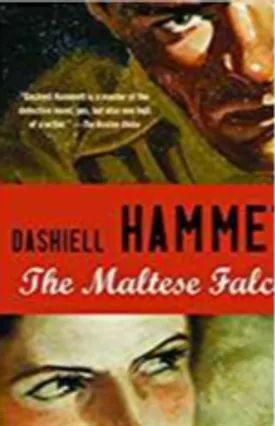Dashiell Hammett
Dashiell Hammett is one of the most influential authors of the 20th century. He was born Samuel Dashiell Hammett in 1894 in Maryland, and is best known for his works of fiction featuring the characters Sam Spade and the Continental Op. He is often referred to as the "father of the hard-boiled detective story," with his works featuring a distinctive style of highly realistic characters, pacing, and use of dialogue to create suspense.
Hammett was not formally educated, but began to write stories for pulp magazines in 1919. He then turned to writing novels and other works of fiction, many of which were based on his own experiences working as a private detective in San Francisco. His first novel, Red Harvest, was published in 1929 and quickly earned an international reputation as a master of the hard-boiled detective story.
His most famous works are The Maltese Falcon, The Thin Man, and The Glass Key. The Maltese Falcon, published in 1930, is often called the quintessential example of the hard-boiled detective story. The novel follows a San Francisco private detective, Sam Spade, as he investigates a mysterious murder related to the search for a valuable statuette known as the “Maltese Falcon.” The Thin Man (1934) is a detective story with a lighthearted tone, featuring the recurring characters Nick and Nora Charles. The Glass Key (1931) features another of Hammett's private detectives, Ned Beaumont. In this novel, Beaumont investigates a political scandal in which he suspects his best friend may be involved.
Hammett's works are popular not only because of his distinctive style, but also because of the themes he explores. Hammett’s characters are driven by moral ambiguities, power struggles, the search for justice, and the quest for the truth. He draws upon his experiences working as a private detective and writes with a great deal of insight into psychology and human behavior. His novels are known for their subtle treatments of themes such as greed, violence, morality, and obsession.
Hammett also wrote several short stories, many of which were also published in pulp magazines. His short stories often touch upon the same themes as his novels, with characters that are even more dark and gritty than his novel protagonists. His stories have been published in anthologies and are regularly taught in literature classes.
In addition to his writing, Hammett was an active member of the Communist Party and worked on several screenplays, including one for the 1948 film The Naked City. Hammett's works were adapted into both radio programs and a number of popular film noir movies, cementing his legacy as a great American novelist.
In 1961, Hammett was awarded a special Edgar Award from the Mystery Writers of America. He died in 1961 in New York City, leaving behind a lasting legacy in the world of crime fiction. His works remain popular today, and are widely read and studied by fans and scholars of literature.

